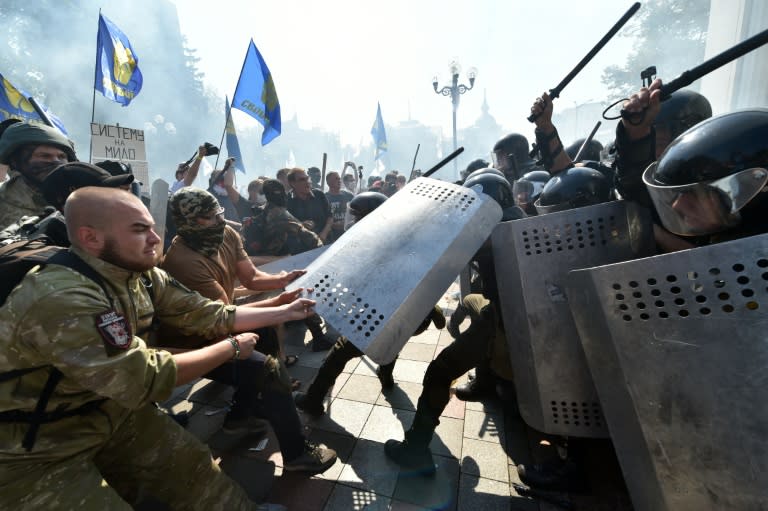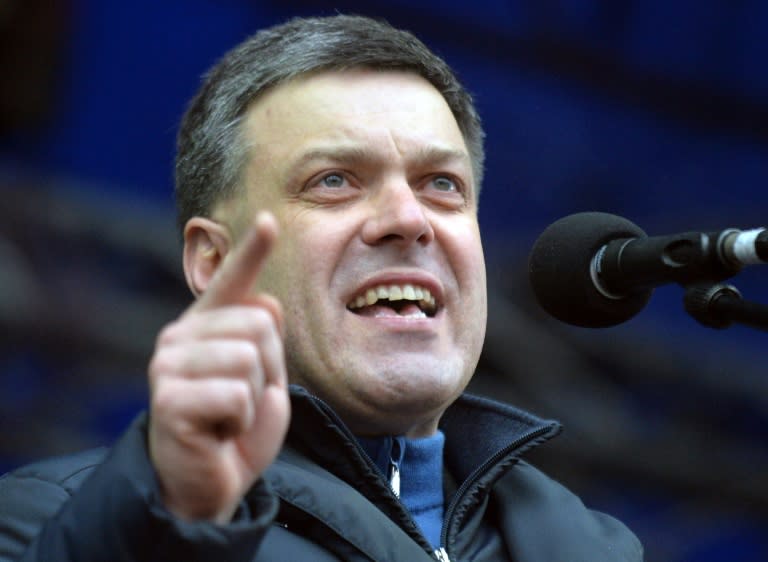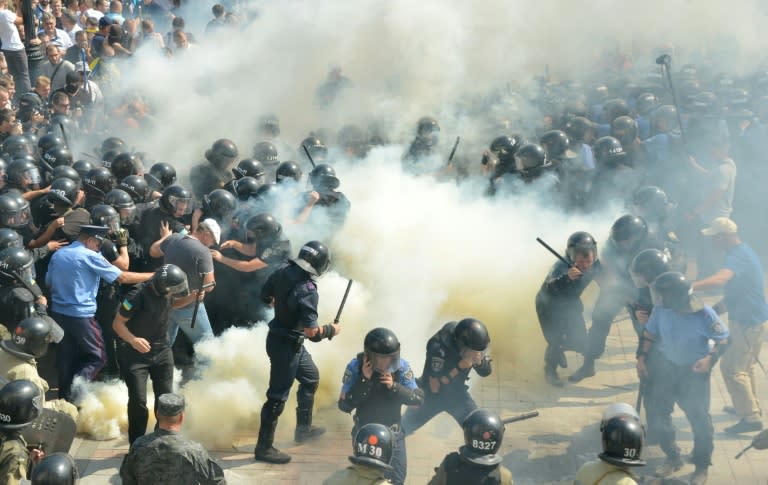Ukrainian ultranationalist party Svoboda, a history of violence
The Ukrainian ultranationalist party Svoboda, blamed for clashes that killed one person and injured dozens more outside parliament on Monday, has a long-established reputation for violent confrontation. Svoboda supporters were heavily represented in Monday's demonstration, which opposed lawmakers' support of a bill to widen autonomy to pro-Kremlin rebel regions in eastern Ukraine. The West says more autonomy would help end the 16-month-long armed conflict, but many Ukrainians are opposed, fearing it could legitimise rebel control over the country's industrial east. Interior Minister Arsen Avakov said Svoboda party leader Oleg Tyagnybok and his organisation were "directly" to blame for the clashes. "Tyagnybok did not bring protestors before Parliament but bandits who killed and maimed" law enforcement officers, he said. Avakov said the assailant who tossed a grenade at police officers and journalists -- its shrapnel killing a 24-year-old member of the National Guard -- had admitted after arrest that he was a member of Svoboda and the Sich battalion, which is fighting pro-Russian rebels in the east. Tyagnybok said the incident was a "provocation planned by the authorities." Pictures from the scene showed several protesters beating up a law enforcement officer in front of an apparently impassive Tyagnybok. The Sich battalion, created after clashes erupted in eastern Ukraine last year, is composed of Svoboda volunteers integrated into the Ukrainian interior ministry. On its website, the party says 19 of its members have died in fighting with pro-Russian separatists since April 2014. Svoboda also took part in the pro-European Maidan protests that led to the ousting of pro-Moscow President Viktor Yanukovich in February 2014. The party lost 16 members, the largest number of casualties for any political movement active in the protests. - Little support - With its supporters concentrated in western Ukraine, the party managed to enter parliament only once in its 11-year history, garnering 10 percent of the vote in the 2012 legislatives elections, when it was viewed as a counterweight to the pro-Russian government. Svoboda lawmakers have been known to engage in physical confrontations with pro-Russian parliamentarians. In spite of a new wave of patriotism that engulfed the country after Russia's annexation of Crimea, Svoboda received only 4.7 percent of the vote in last year's parliamentary elections. The party -- formed in 2004 from a political movement that until then had called itself the Social-National party of Ukraine -- strongly emphasises Ukraine's distinct cultural identity, regards former Soviet rule as an occupation of Ukrainian territory, scorns the Kremlin and plays up the importance of the Ukrainian language over Russian. A pillar of the party's ideology is the glorification of the Ukrainian Insurgent Army (UPA) that fought against Soviet forces in World War II and whose offshoots continued anti-Soviet resistance right up into the 1950s. Western historians accuse the UPA of collaborating with Nazi forces in World War II and also being complicit in the ethnic cleansing of Poles from what is now Ukrainian territory. In recent years, Svoboda has continued to adopt hugely controversial positions, staunchly opposing gay pride parades and annual pilgrimages to the country by Hassidic Jews.




